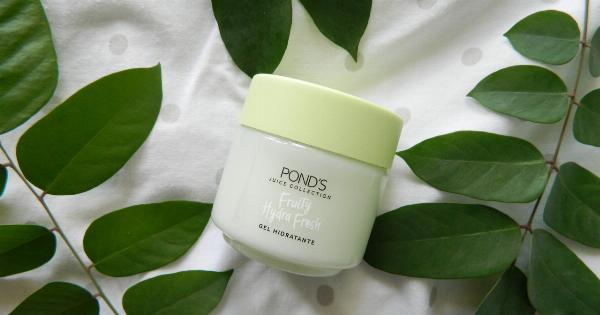Acne is a common skin condition that affects millions of individuals worldwide. It can be a source of frustration and embarrassment, impacting one’s self-esteem and confidence.
Understanding the causes of acne is crucial in order to effectively treat and manage the condition. In this article, we will explore the various factors that contribute to the development of acne.
The Role of Hormones
Hormonal changes play a significant role in the development of acne. During puberty, an increase in androgens, a type of hormone, stimulates the sebaceous glands in the skin to produce more sebum.
Sebum is an oily substance that helps lubricate and protect the skin. However, excess sebum production can lead to clogged pores and the formation of acne lesions.
Furthermore, hormonal fluctuations can occur due to various factors such as menstrual cycles, pregnancy, or certain medical conditions.
These hormonal imbalances can trigger or exacerbate acne breakouts in individuals who are predisposed to the condition.
The Impact of Genetics
Genetics also play a role in the development of acne. If your parents or close relatives have a history of acne, there is a higher likelihood that you may experience the condition as well.
Certain genetic variations can influence the way your skin produces sebum, how easily your pores become clogged, and how your body responds to inflammation, all of which contribute to acne formation.
Pore Blockage and Bacterial Infection
Acne develops when the hair follicles become clogged with oil and dead skin cells. This combination forms a plug, known as a comedo, which can be open (blackhead) or closed (whitehead).
When these plugs are exposed to air, they can oxidize and appear black. Bacterial overgrowth, particularly Propionibacterium acnes, can then infect and inflame these clogged pores, leading to the formation of pimples, pustules, and nodules.
Diet and Acne
While the relationship between diet and acne is still being studied, certain dietary factors have been associated with an increased risk of developing acne.
Foods with a high glycemic index, such as sugary and processed foods, may contribute to acne formation. This is believed to be due to their ability to rapidly spike blood sugar levels and trigger hormonal changes that stimulate sebum production.
Additionally, dairy products and foods rich in saturated fats have also been linked to acne development in some individuals.
Environmental Factors
Environmental factors can also influence the development of acne. Exposure to pollutants, irritants, and chemicals present in air or skincare products may contribute to the formation of acne.
For example, certain oils or cosmetics that clog pores can worsen existing acne or trigger new breakouts. Moreover, excessive humidity or sweating, especially when combined with friction or pressure, can create an environment favorable for the growth of acne-causing bacteria.
Stress and Acne
Although stress does not directly cause acne, it can exacerbate existing acne or contribute to acne flare-ups. Stress triggers hormonal changes in the body, which can increase sebum production and inflammation.
Moreover, stress may lead to behaviors such as touching or picking at the skin, which can worsen acne lesions and potentially cause scarring.
Medications and Acne
Some medications can potentially trigger or worsen acne as a side effect. These include corticosteroids, hormonal contraceptives, certain anticonvulsants, and lithium.
If you suspect that a medication is contributing to your acne, it is important to consult with a healthcare professional for potential alternatives or additional treatment options.
Skin Care Routine and Hygiene
Your skin care routine and hygiene practices can also impact the development of acne. Overwashing or using harsh, abrasive products can strip the skin of its natural oils, leading to increased sebum production and potential pore blockage.
On the other hand, inadequate cleansing or not removing makeup before bed can allow dirt, bacteria, and impurities to accumulate on the skin, clogging pores and promoting acne formation.
Treatment Options for Acne
Fortunately, there are various treatment options available to manage and reduce the symptoms of acne. These include:.
– Topical creams or gels containing ingredients such as benzoyl peroxide, salicylic acid, or retinoids to target and treat acne lesions.
– Oral medications like antibiotics or hormonal therapies for more severe cases of acne.
– Isotretinoin, a powerful oral medication used for severe cystic acne, though it comes with potential side effects.
– Light therapy, such as blue light or red light therapy, to kill acne-causing bacteria or reduce inflammation.
– Chemical peels or microdermabrasion, which can help unclog pores and improve the appearance of acne scars.
– Adopting a healthy diet and avoiding trigger foods that can exacerbate acne.
The Importance of Consistency and Patience
It is important to note that treating acne requires consistency and patience. Results may not be immediate, and it may take several weeks or months to notice significant improvements.
Additionally, what works for one individual may not work for another, so it may be necessary to try different treatments or combinations of treatments to find the most effective solution for you.
Conclusion
Acne is a multifactorial condition influenced by various factors such as hormonal changes, genetics, environmental factors, stress, and skincare habits.
Understanding the causes of acne can help in developing an appropriate treatment plan and managing the condition effectively. By adopting a holistic approach that addresses both internal and external factors, individuals can achieve clearer, healthier skin and improve their overall well-being.



























